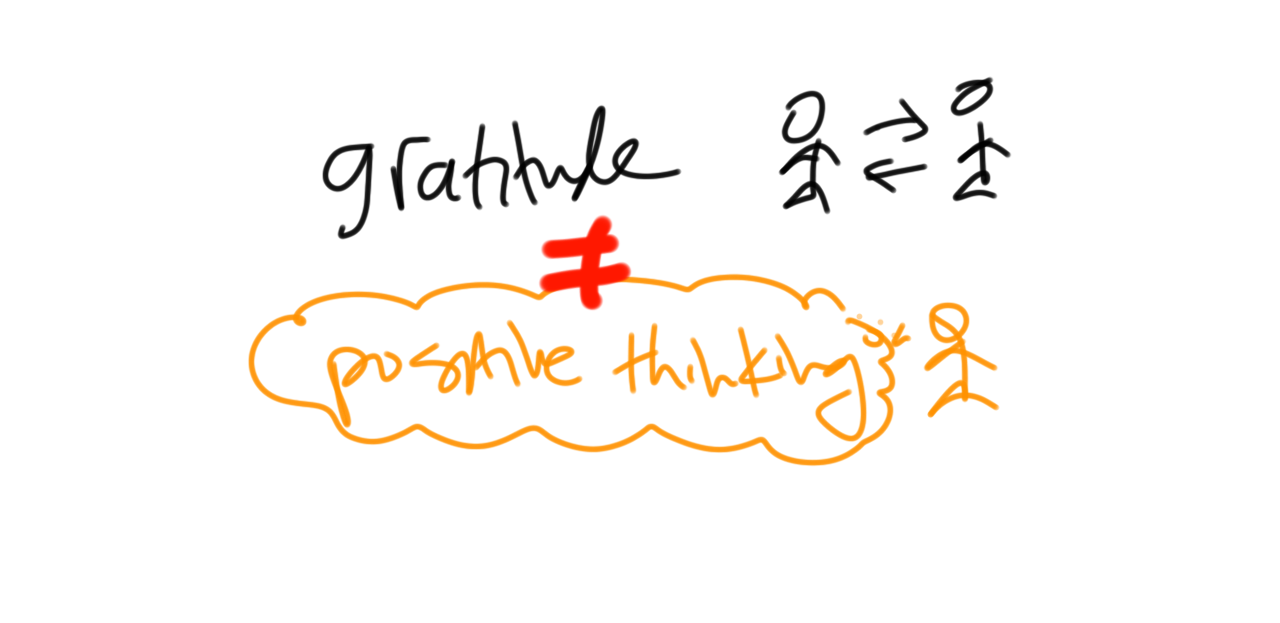Positive thinking is an emotion and gratitude is more than just an emotion. Because if gratitude was just positive thinking, does it mean we are not grateful when we don’t feel positive? It’s pretty hard to be positive all the time. You know what, this reminds me of an oatmeal comic: How to be perfectly unhappy. The comic shares how people see happiness as binomial – either you’re happy or you’re not, but not as a spectrum when it might actually be. Because of this definition of the word, it makes it difficult to say, “I am happy” – because emotions are fleeting.
Like what the comic says, “Our sense of happiness is so brittle, it can be destroyed simply by asking whether or not it exists”. Similarly, I agree with Howells (2012) that if we were to simply define gratitude as positive thinking, that would also make its definition brittle.
Hence, that’s why sometimes I feel that I’ve lost the meaning of gratitude because I was not feeling positive even though I was reflecting on gratitude. When that happens I think “this gratitude thing isn’t working” or I question myself if I’m really grateful and wonder if there’s something wrong with me because I’m not feeling positive.
Most days I feel neutral. Even though I sometimes see gratitude as a tool for motivation, I don’t always feel motivated even after my morning journaling. But it helps to set the intention for the day. I remind myself then of words from Jocko Willink, a Navy SEAL, “don’t count on motivation, count on discipline”.
Anyway I digress. Whereas positive thinking is possible without involving others, gratitude is “profoundly interpersonal” and requires an interaction with the other, giving back and returning thanks. Quoted from Edward Harpham in Howells (2012), “gratitude is always embedded in the relationship between two parties. The capacity to be grateful and generous develops in the context of a social relationship”.
Again, back to the focus on the other person – a desire to give back for the gift you received. I like that. I don’t see this sense of indebtedness a bad thing. It almost feels liberating and meaningful. It’s meaningful to be in service of others, to be useful.
I wonder how we can practice gratitude even for the seemingly insignificant situations in our lives. I think of what a friend and I discussed about yoga, where in some classes, the teacher may ask you to dedicate this class to someone, by doing so you can find strength when you’re struggling in some of the harder poses later. Dedication, is in a way giving, so I guess it could be considered a form of gratitude as well.

References:
Howells, K. (2012). Gratitude in Education.
Leave a Reply